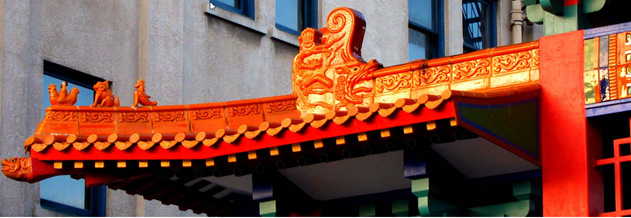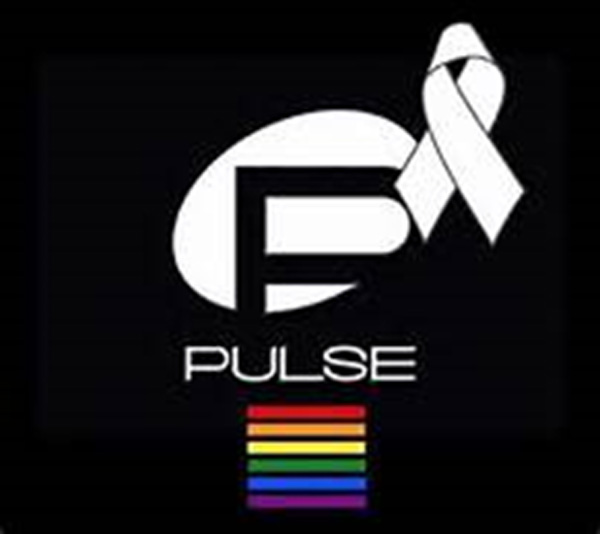South Park Public Safety Task Force; MHA Amendments & Upzones; Your Voice, Your Choice Voting through June 30; Pulse Vigil; Office Hours
South Park Public Safety Task Force Update
During the 2017 budget process, Councilmember González and I co-sponsored a budget action to create a South Park Public Safety Task Force during 2017. South Park had the 3rd highest number of gunshots reported in Seattle neighborhoods during 2016, and the highest increase over 2015, according to Seattle Police Department data.
The purpose of the task force is to formulate and report to Council recommendations regarding the public safety and vitality of that neighborhood, including strategies that reflect the unique situations or dynamics of the neighborhood and are culturally and linguistically responsive data-driven approach to improving the City’s relations to and effectiveness with the South Park neighborhood.
The task force had its first meeting in May, and went over designed outcomes for the task force, and vision for South Park. Areas identified include more police visibility, youth development opportunities, lighting, open communication, drug houses, as well as various items re: the business district.
Meetings will continue over the next few months, with a final report due in September, in advance of the commencement of the Council’s budget process for the 2018 budget. The report will go to Councilmember González’s Gender Equity, Safe Communities and New Americans Committee.
CID MHA Amendments and Johnson Report on SLU/Downtown MHA Opt-in
On Tuesday, the Planning, Land Use and Zoning (PLUZ) Committee held its fourth meeting to discuss the proposed legislation for the Chinatown and International District (CID) mandatory housing affordability (MHA) upzones.
At Tuesday’s meeting, the PLUZ committee voted on an important amendment to Council Bill 118959 to expand the size of the International Special Review District (ISRD) sponsored by Councilmember Rob Johnson, the PLUZ Committee Chair. This amendment will allow the ISRD the authority – in a larger geographic area – to make recommendations that preserve the District’s unique Asian American character and to encourage rehabilitation of areas for housing and pedestrian-oriented businesses.
I am also sponsoring one additional amendment that will come to Full Council in July. The amendment to Council Bill 118959 will allow developers an additional 10 extra feet of height to projects with 10 or more units affordable to very low-income households (30-50% of Area Median Income). Normally, the MHA units produced through performance and or payment must be used on units at or below 60%. I am offering this amendment to incentivize market rate developers to develop units with even deeper affordability. C/ID residents have asked for deeper affordability to ensure those currently living in the CID can remain living there.
In addition, we voted on a variety of amendments for the companion Resolution 31754. I worked with community members in the Chinatown/International District (C/ID) on several of these amendments, which passed unanimously out of committee, here are a few highlights:
- A commitment to business community stakeholders to develop strategies to promote economic development and commercial stability;
- Consideration of specific changes to the ISRD rules and guidelines including:
- Reducing the maximum permitted size of retail uses;
- Specifying important characteristics of storefront entrances and their spacing;
- Amending the list of conditional uses;
- Applying limits to formula retail uses;
- Allowing administrative review for minor changes to buildings, rather than ISRD board review;
- Providing authority to the ISRD board to grant departures from Land Use Code requirements; and
- Changing the structure of the ISRD board; and
- The addition of two anti-displacement strategies for the C/ID. The first is exploring opportunities to reuse publicly owned property for affordable housing development in the neighborhood. The second is exploring creation of a new Unreinforced Masonry Preservation pilot to increase the supply of affordable housing in vacant floors of buildings in the Chinatown/International District. The pilot program could be funded through either MHA funds from developers, proceeds from the $29 million housing bond approved by the Council in the 2017 budget, or by creating a new targeted growth fund with revenues from an increment of increased property tax revenue from future growth.
Responding to the requests for additional time from many members of the C/ID, the PLUZ committee vote the bill out of committee, but not send the legislation straight to Full Council as is the practice. The intent it to support additional community engagement with community members. Groups like Humbows Not Hotels are doing fantastic organizing work in the C/ID and I want to support them and their work. I am also interested in using the extra time to work with PLUZ committee members and Executive staff to increase the developer requirements to contribute to affordable housing.
I appreciate that Councilmember Johnson agreed to delay the Full Council vote on this legislation despite his concerns that delays may lead to projects in the C/ID not having the opportunity to “opt in” to MHA and contribute to affordable housing. There are currently about 55 projects in the development pipeline located in the C/ID. You may recall that last month Councilmember Johnson released a statement that said, “developers from seven already-permitted building construction projects have begun the process to opt-in to the new Mandatory Housing Affordability (MHA) program in Downtown and South Lake Union. Contingent on Department approval, those projects could result in a staff-estimated $25 million of payments for affordable housing, which could result in 320 new affordable units (after MHA funds are leveraged with other dollars).”
I asked for additional information about this interest of developers to opt in voluntarily to MHA in South Lake Union and Downtown and voluntarily contribute to affordable housing. I learned that since the Downtown / SLU rezone ordinance only just became effective the actual outcome from the opt-in provision is still essentially unknown, and specifically:
- While some current applications without issued Master Use Permits (MUPs) have shown alternatives to the Design Review Board that incorporate the additional development capacity, none of the approximately 7 projects that could opt-in have gotten to the point of actually formalizing their commitment to opt-in by getting an approved MUP or MUP revision that utilize the extra development capacity; and anecdotal stories statements of interest are not guarantees of future action. But I do hope these developers do voluntarily opt in!
- The $25 million estimate assumes maximum build out of a site, again despite the fact that we have no specific information about MUPs approved for maximum build out. In other words, the numbers assume that a developer who might at some later date opt in will use all of the additional capacity granted through the Downtown / SLU rezone ordinance. That also might not be the case. We simply do not know.
- Further, even if these 7 projects were to either receive MUP decisions under MHA or submit and receive new MUPs for maximum build out of these seven locations, the $25 million estimate does not derive from MHA obligations. The $25M figure is not the addition from the added MHA increment. The total from the MHA increment would be between $2.6M and $9.1M, the existing incentive zoning program accounts for the rest. Each of these projects already (without some future possible voluntary opt-in to MHA affordable housing requirements) would contribute between $16M and $22M under their current MUPs, depending on what’s eventually built.
What’s New about the City Wide Proposed MHA Upzones?
Hot off the presses, the Office of Planning and Community Development published the Mandatory Housing Affordability Draft EIS on June 8, 2017. The comment period is open until July 23, 2017. Please comment using the online form, by email to MHA.EIS@seattle.gov, or by mail to:
Office of Planning and Community Development
Attn: MHA EIS
PO Box 34019
Seattle, WA 98124-4019
For more information about the environmental review process watch our What is an EIS? video. The Washington State Department of Ecology also has information about SEPA and the EIS process.
Remember to VOTE – Your Voice, Your Choice Voting through June 30
Public voting for the Your Voice, Your Choice “participatory budgeting” program has begun, and will be open through June 30th. Here’s a map view of where the projects are located.
You and your neighbors can vote to award funding for the city’s Neighborhood Park and Street Fund, which funds street and park projects up to $90,000; $285,000 will be awarded for each of Seattle’s seven City Council Districts. You can vote for a total of three projects and anyone age 13 and over can vote online. Eleven and 12 year-olds can vote in person.
If you want to vote online, go to the voting webpage, and select your Council District, then open the voters’ guide with information on the projects, and vote. Here’s a link to the District 1 voting webpage.
Paper ballots are also available at all community centers and libraries. If you need a paper ballot, please contact Kraig Cook at Kraig.Cook@seattle.gov or 206.256.5944. The Your Voice, Your Choice main page includes multilingual instructions . Ballots will be tallied after June 30 and winning projects will be announced by July 18.
Events where you can vote are listed here on the “Vote in Person” tab. Here are upcoming locations where you can vote in person in District 1:
West Seattle Farmer’s Market
Sunday, June 11, 2017
10:00 AM – 12:00 PM
Farmers Market, 44th Ave SW & SW Alaska St or park at Alaska & 42nd Ave SW
Stewart Manor Resident Council Meeting
Monday, June 12, 2017
4:00 PM – 5:00 PM
Stewart Manor, 6339 34th Ave SW
Morgan Junction Festival
Saturday, June 17, 2017
10:00 AM – 4:00 PM
Morgan Junction Park, 6413 California Ave SW
Delridge Neighborhood District Council
Wednesday, June 21, 2017
7:00 PM – 8:00 PM
Youngstown Cultural Arts Center, 4408 Delridge Way SW
Here’s a link to the History of Participatory Budgeting in Seattle, which began with a youth-oriented focus in 2016, and allowed youth from 11-25 to vote.
Pulse Vigil, We Will Remember, 1 Year Anniversary
One year ago, on Monday June 12th, 49 people were killed and another 53 were wounded in an attack at an Orlando nightclub. At 7pm in Cal Anderson Park the community will come together to remember the victims and celebrate their lives. There will be music, and a reading of their names while we stand as a community in their honor. Please bring signs, banners, friends and join us to stand in love.
I will be at the South Park Community Center (8319 8th Ave S), Friday June 26th from 2:00 p.m. – 7:00 p.m. Please be sure to arrive no later than 6:30 pm, the final meeting of the day will begin at 6:30 p.m.
These hours are walk-in friendly, but if you would like to let me know you’re coming in advance you can email my scheduler Alex Clardy (alex.clardy@seattle.gov).
Additionally, here is a list of my tentatively scheduled office hours. These are subject to change.
| Date | Location | Address |
| Friday, July 21, 2017 | Southwest Neighborhood Service Center | 2801 SW Thistle St |
| Friday, August 18, 2017 | Senior Center of West Seattle | 4217 SW Oregon St |
| Friday, September 22, 2017 | South Park Community Center | 8319 8th Avenue S |
| Friday, October 27, 2017 | Southwest Neighborhood Service Center | 2801 SW Thistle St |
| Friday, December 15, 2017 | South Park Community Center | 8319 8th Avenue S |
Posted: June 9th, 2017 under Civil Rights, Councilmember Herbold, District Office Hours, Housing, LGBTQ, Parks and Recreation
Tags: LGBTQ, Mandatory Housing Affordability, office hours, South Park, voting



